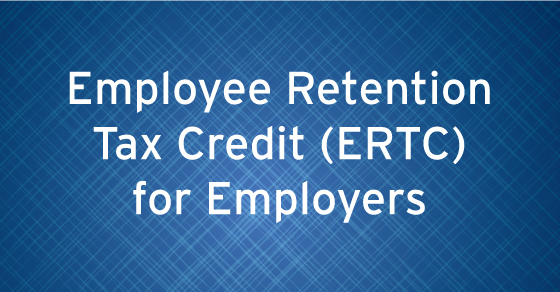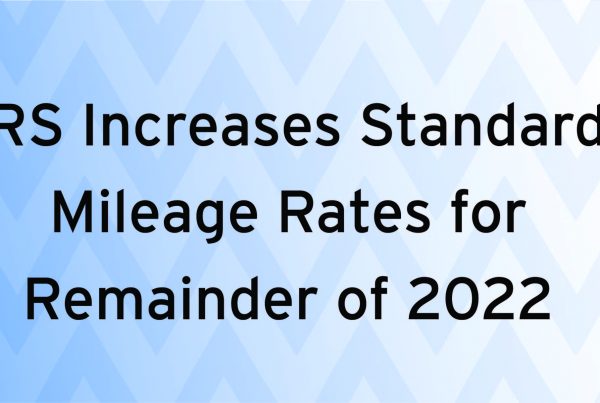The Coronavirus Aid, Relief, and Economic Security Act (CARES) provides relief for many areas of the economy. One aspect – the Employee Retention Credit for Employers (ERTC) provides affected businesses with a refundable payroll tax credit. The CARES Act sets aside $55 billion to fund this specific credit.
Here are the basics:
- The credit is available to eligible employers.
- A fully refundable credit of 50% of qualified wages paid AFTER March 12, 2020 and before January 1, 2021 is available.
- $10,000 is the maximum amount of qualified wages resulting in a maximum credit of $5,000 per employee.
- Can NOT duplicate the credits/deferrals under the Families First Coronavirus Response Act (FFCRA) for the same wages.
- May elect to NOT claim ERTC credit
- Eligible employers claiming the ERTC are NOT eligible to also take advantage of the Paycheck Protection Program (PPP) loan.
Eligible Employer:
- Trade or business (including non-profits) during 2020
- Fully or partially suspended operations during any quarter in 2020 due to COVID-19
- Direct result of orders from an appropriate governmental authority OR
- Records a significant decline in gross receipts during a quarter of fully or partially suspended operations
- Excludes: governmental employers and self-employed individuals but only excludes their self-employment earnings – not wages paid to employees
Significant Decline in Gross Receipts:
- Greater than 50% decrease for a quarter in 2020 over the same quarter for 2019.
- Ends the first day of the second quarter in 2020 that gross receipts are greater than 80% of same quarter in 2019.
Example:
| 2020 Gross Receipts | 2019 Gross Receipts | Percent | Eligible Credit Period? | |||||
| Q1 | $100,000 | $210,000 | 48% | Y | ||||
| Q2 | $90,000 | $230,000 | 39% |
Y |
||||
| Q3 | $202,500 | $250,000 | 81% | Y | ||||
| Q4 | $230,000 | $260,000 | 88% | N | ||||
Qualified Wages for ERTC:
- Eligible employers with an average of more than 100 full time employees in 2019
- Wages paid to employee for NOT providing services due to either
- A full or partial suspension of operations by order of governmental authority OR
- A significant decline in gross receipts
- Qualified wages may not exceed the normal wages paid during the 30 days immediately preceding the period of economic hardship
- Wages paid to employee for NOT providing services due to either
- Eligible employers with an average of 100 or fewer full-time employees in 2019
- Wages paid to any employee, regardless of whether or not they were performing services are eligible for the credit under the same suspension of operations or decline in gross receipts criteria
- Eligible employer wages include the qualified health plan expenses properly allocable to wages per employee
- Wages are NOT required to be paid to employees
Employment Taxes Reduced by Employer Retention Credit:
- The ERTC reduces the employers share of social security taxes for wages and railroad employers which is 6.2% in both cases
- To the extent the amount of credit exceeds the amount of employer tax liability, the excess is refundable
How to Claim the Credit:
- Report eligible wages on Form 941 for the applicable quarter
- Can reduce required federal employment tax deposits in anticipation of getting the credit
- Penalties for failing to make full deposit might be waived
- Can request an advance credit from the IRS
- Must first reduce all federal employment deposits to zero for the quarter
- File Form 7200, Advance Payment of Employer Credits Due to COVID-19 IF paid qualified wages are in excess of the amount of required federal employment deposits
- True-up will be done of Form 941 for that quarter
The ERTC is reflected on your businesses payroll tax return and will affect your payroll tax deposits and/or refund on your quarterly payroll tax returns. We suggest that you reach out to your payroll service provider to understand how to properly code this and adjust any payroll tax deposits taking advantage of this credit.
If you have any questions concerning the details of the Employee Retention Tax Credit (ERTC), please contact your Maillie LLP representative via phone or Email.





